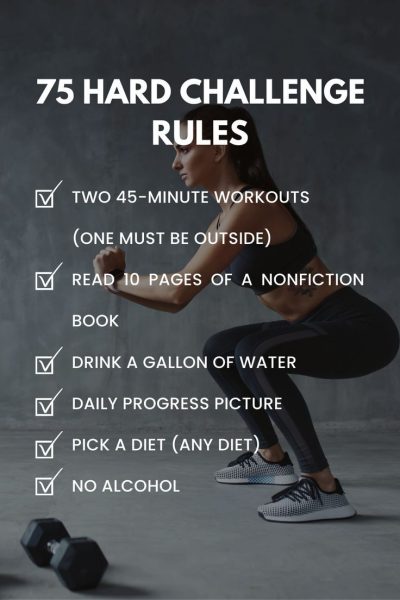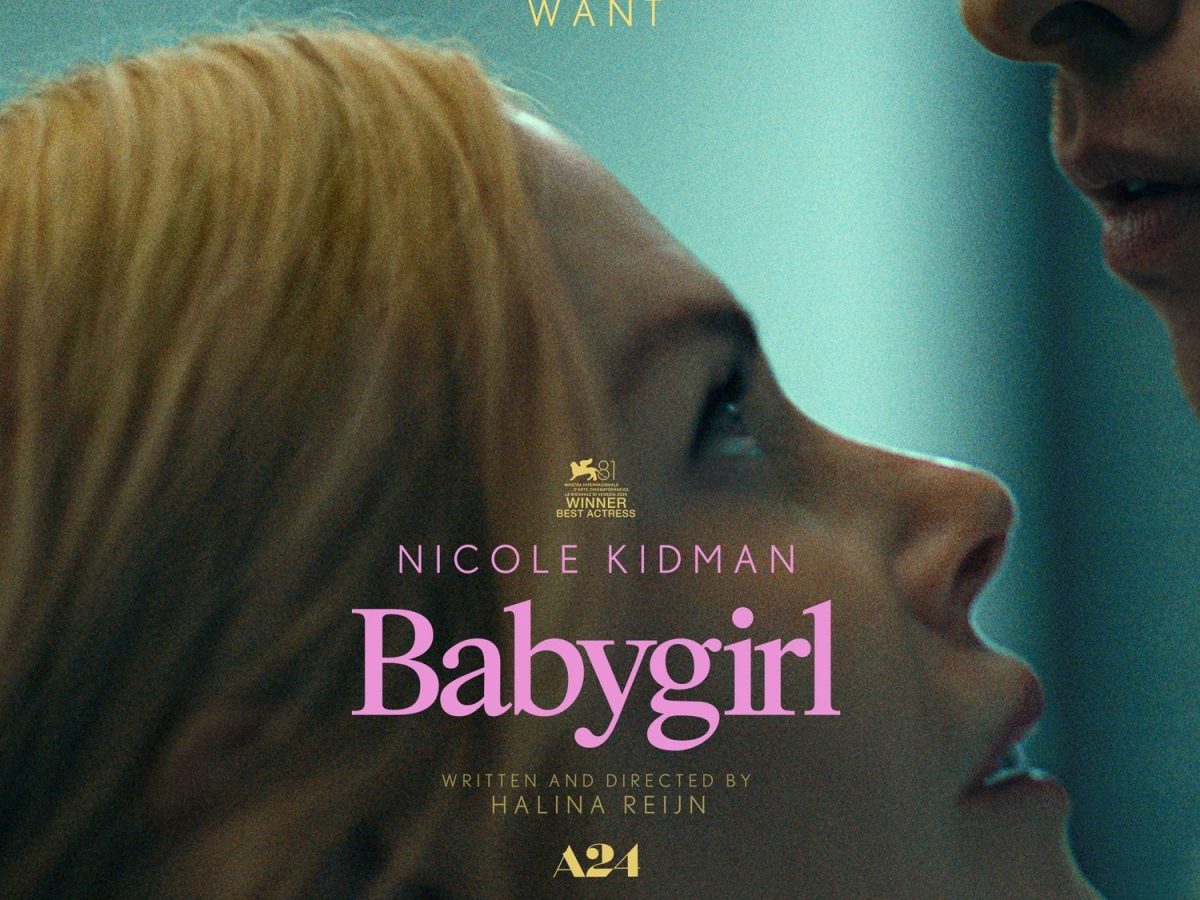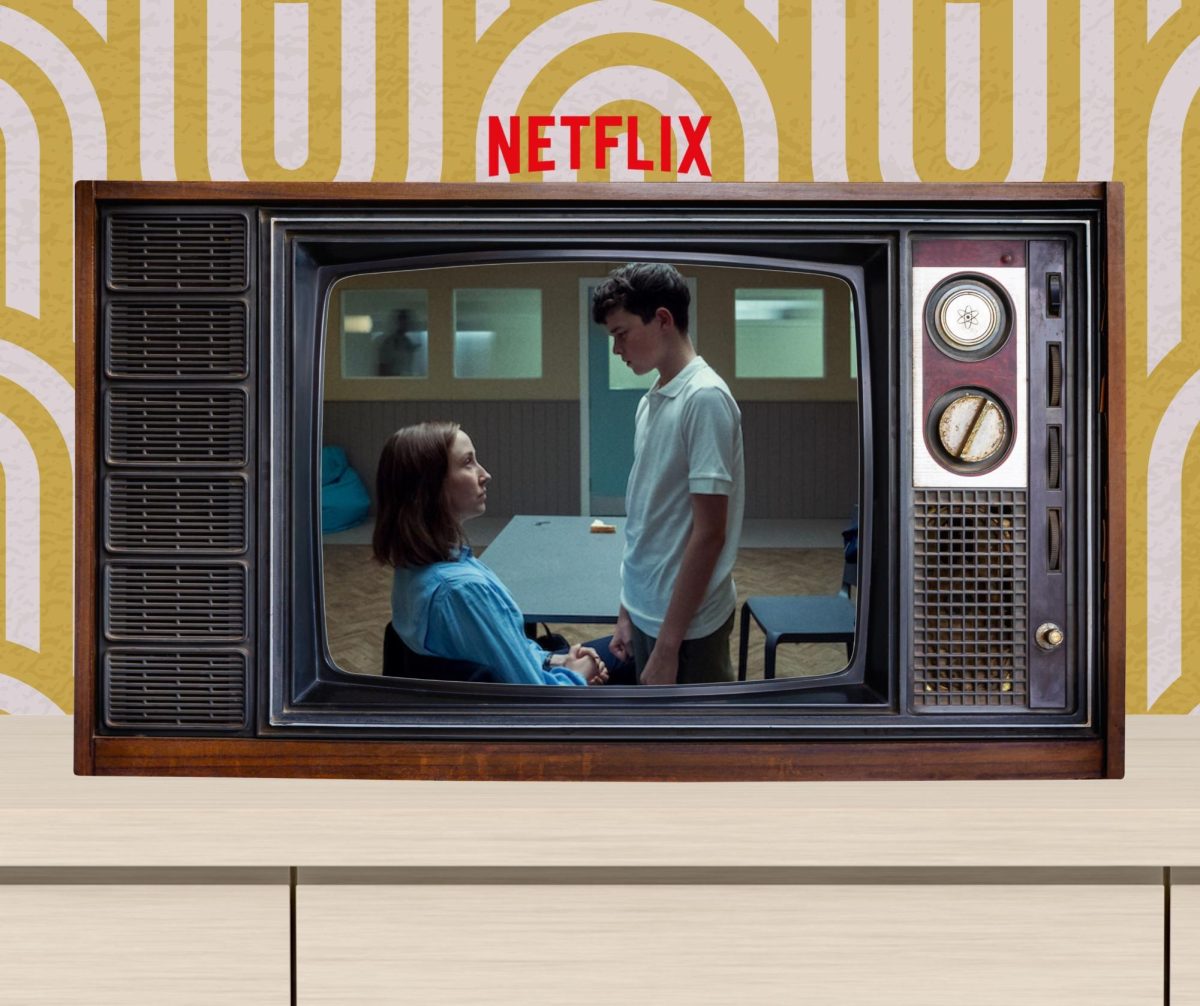Fitness has always been trending, but 75 Hard has gone viral.
In 2019, Andy Frisella created 75 hard, because he was tired of seeing multiple people start and quit fitness plans. After doing the challenge for himself he began promoting 75 Hard as “mental toughness” and that it would “permanently change your life forever”.
What makes 75 Hard so appealing is that it follows six strict rules without a specific diet or workout plan. This allows some leeway regarding what works specifically for people, such as their mental and physical target goals.
The Rules of 75 Hard:
-
- Stick to a diet→of choice
- Drink a gallon of water a day
- No cheat meals or Alcohol
-
- Read 10 pages of a book→Non-fiction or Self-improvement book, no audiobooks
- 2x 45 minute workouts a day→One has to be outside, One in the morning/one in the evening or afternoon
- Take a progress picture every day→ Doesn’t have to be posted, they’re taken just for you to see the progress over time
- No skip days
The rules are very rigid and if you mess up at least one of the rules for a single day out of the 75, you must start over.
According to the Challenge Website, over a million people have effectively completed the challenge. However, no evidence proves that it works. In fact, 75 Hard has a lot of red flags.
The most controversial problem with 75 Hard is that it doesn’t include a rest day. Our bodies must recover and if they aren’t given the opportunity to repair, it could lead to injury. Every time someone works out they create microscopic tears in their muscle tissues. However with rest days, those tears heal and muscles grow stronger.
Another red flag of 75 Hard, is that for some it can be a complete shock to the body. If someone wasn’t initially routinely active the intensity of 75 Hard could harm the body.
“If [75 Hard] becomes too hard to follow and you want to stop that’s okay. It doesn’t mean you’re weak, your body just isn’t quite ready for it” said Cara D’orazio, a CDT certified personal trainer, in a Womens Health article. However, the challenge does benefit overall accountability and strucutre. It also takes a holistic approach and allows people to take a customize workouts why still focusing on physical endurance.
The overall verdict is that 75 Hard is not worth it. There are so many other ways to challenge yourself and your body without taking it to an unhealthy extreme. Many people aren’t even able to keep up with the lifestyle after accomplishing the 75 days due to its intensity, making the whole challenge seem worthless. Ultimately, we can push ourselves but we should focus on progress over utmost perfection.




















